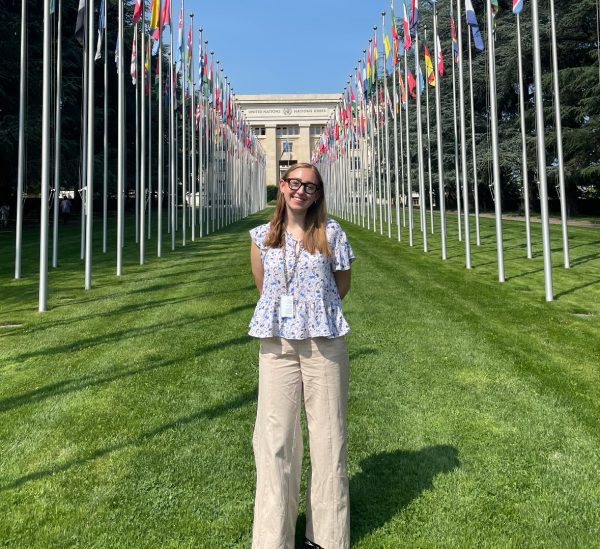Professor Peter Klepeis: Into the Field
Peter Klepeis is a professor of geography at Colgate, whose teaching focus centers on nature-society relationships, political ecology and environmental history. His course titled “The Geography of Happiness” encourages students to consider the relationships between natural phenomena and their personal wellbeing.
As an alumnus of Colgate, Klepeis has long held a familiarity with the environment of the university. Of his undergraduate experiences, he remarked on the value of a semester off he and his brother took in Southern Chile, during which he decided to return and pursue a geography major. After his 1994 graduation, Klepeis proceeded to receive his Ph.D. in geography at Clark University in Boston, Mass., where he grew up.
Klepeis descends from a line of natural scientists — two of his three older brothers attended Colgate for their undergraduate studies. To Klepeis, science is most engaging in its applied forms, where he can immerse himself in the unique environmental culture of regions he studies. In his studies, Klepeis emphasizes the relationship between the personal and the natural and notes that his interests mirror his work. Additionally, he surveys how human psychology impacts decision making regarding the environment.
“I study topics like tropical deforestation, where you need to have an understanding of biophysical processes,” said Klepeis. “Further, I’m interested in how people interact with that biophysical realm. [My work] is about seeing change in the world and trying to understand it using social and natural science.”
“The Geography of Happiness” course introduces this phenomena to students and engages students with a synthesis of the social and natural sciences. On a trip abroad in Manchester, England, Klepeis spoke with Colgate Professor Ferdinand Von Muench about the difficulty of engaging individual students with broad climate conversations. To encourage dialogue in this area of thought, “The Geography of Happiness” was borne, initially offered as a 300-level geography course. This past fall, the course was offered as a first-year seminar (FSEM). Klepeis remarked as to the scaffolding benefits of an environmental education at any level.
“When you learn about the environment, you develop a sense of place,” Klepeis said. “For instance, if you connect with other people through a community garden, you can build strong relationships, and strong relationships can make you happier.”
“The Geography of Happiness” offers a multi-disciplinary scientific survey into the psychological and natural. After initial discussions that define happiness and provide a foundation in natural phenomena discussed, students are encouraged to develop a sense of place in their own lives, and assigned to visit six distinct outdoor locations outside of class. But there’s a catch — for the duration of their visit, they must keep off of their mobile devices for 15 minutes. Klepeis’s assignment seeks to sharpen a student’s ability to understand the natural world in the midst of a technological age.
“They’re all reluctant, initially, that’s what they tell me. But at the end of the semester, students reflect and say that they appreciated the exercise, because they were able to begin to observe more, and hone their senses.”
What Klepeis has taken away from many of his connections with students is that applied learning is integral to a study of the personal interacting with the natural. Meditation at the Chapel House and visits to the university greenhouse are but a few assignments that bring students out of the classroom and into the larger realm of science and psychology’s relations.














